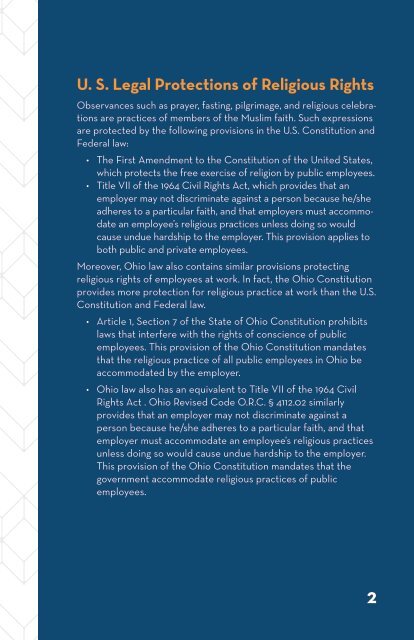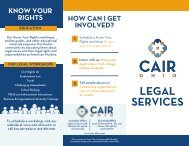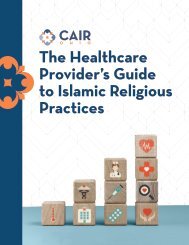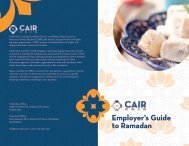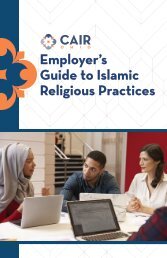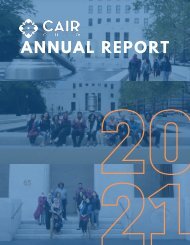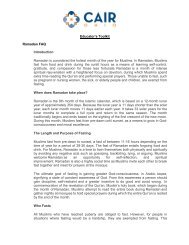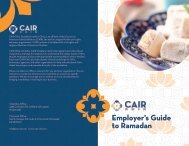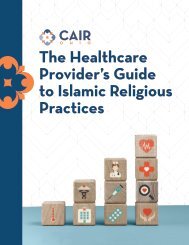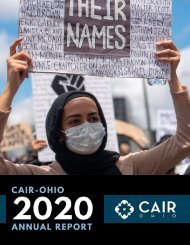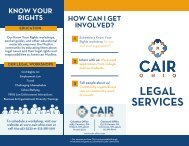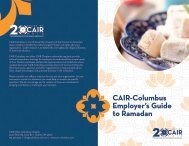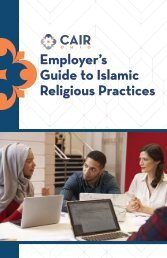CAIR-Ohio Employer's Guide to Religious Practices
Create successful ePaper yourself
Turn your PDF publications into a flip-book with our unique Google optimized e-Paper software.
U. S. Legal Protections of <strong>Religious</strong> Rights<br />
Observances such as prayer, fasting, pilgrimage, and religious celebrations<br />
are practices of members of the Muslim faith. Such expressions<br />
are protected by the following provisions in the U.S. Constitution and<br />
Federal law:<br />
• The First Amendment <strong>to</strong> the Constitution of the United States,<br />
which protects the free exercise of religion by public employees.<br />
• Title VII of the 1964 Civil Rights Act, which provides that an<br />
employer may not discriminate against a person because he/she<br />
adheres <strong>to</strong> a particular faith, and that employers must accommodate<br />
an employee’s religious practices unless doing so would<br />
cause undue hardship <strong>to</strong> the employer. This provision applies <strong>to</strong><br />
both public and private employees.<br />
Moreover, <strong>Ohio</strong> law also contains similar provisions protecting<br />
religious rights of employees at work. In fact, the <strong>Ohio</strong> Constitution<br />
provides more protection for religious practice at work than the U.S.<br />
Constitution and Federal law.<br />
• Article 1, Section 7 of the State of <strong>Ohio</strong> Constitution prohibits<br />
laws that interfere with the rights of conscience of public<br />
employees. This provision of the <strong>Ohio</strong> Constitution mandates<br />
that the religious practice of all public employees in <strong>Ohio</strong> be<br />
accommodated by the employer.<br />
• <strong>Ohio</strong> law also has an equivalent <strong>to</strong> Title VII of the 1964 Civil<br />
Rights Act . <strong>Ohio</strong> Revised Code O.R.C. § 4112.02 similarly<br />
provides that an employer may not discriminate against a<br />
person because he/she adheres <strong>to</strong> a particular faith, and that<br />
employer must accommodate an employee’s religious practices<br />
unless doing so would cause undue hardship <strong>to</strong> the employer.<br />
This provision of the <strong>Ohio</strong> Constitution mandates that the<br />
government accommodate religious practices of public<br />
employees.<br />
2


